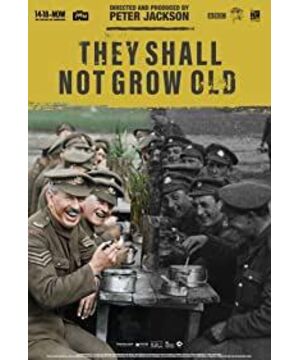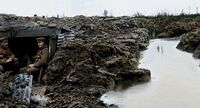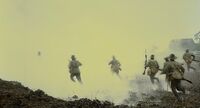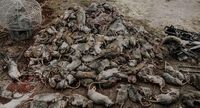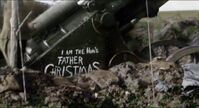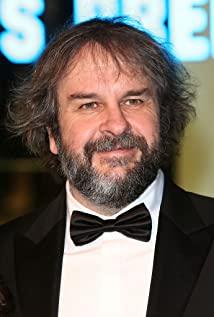Yesterday on Double Eleven, the Chinese side was rushing to buy babies, and the European side was commemorating the dead.
Today, 101 years ago, the First World War ended. Since then, Double Eleven has become a memorial day for the end of World War I in Western countries.
Westerners’ mourning for those who died in World War I has not diminished for more than a hundred years. This makes people a little confused --- this war does not have a glorious theme of “anti-fascism” like World War II, but has a clear distinction between justice and evil. Moreover, no matter how hard it suffered, China also stood on the side of justice and survived the war of resistance. What about World War I? We only know that it is a fierce battle between imperialists vying for benefits and maintaining a new balance of power. Who represents justice? Who represents evil?
Recently, I read some books on modern history and found that Western historians have no consensus on the reason for the war that claimed 10 million lives in World War I.
Why are there so many people who have been obsessed with a war that does not know how to fight and whose moral stand is not so clear?
There is no reason, just because of the 10 million creatures who died on the European battlefield between 1914-1918.
This year's Double Eleven, there is another little-known thing in the domestic film industry: the documentary "They Don't Grow Old Anymore " to commemorate the dead in World War I, officially landed in theaters on the anniversary of the end of the First World War.
I was a little surprised to learn about this news last month. Although the film types of foreign films have begun to diversify in recent years, the introduction of a documentary commemorating the First World War to be released in theaters is still an unusual move.
So I'm very curious, what kind of treatment will this documentary about a war that has nothing to do with the Chinese people be treated?
As far as I am concerned, I can say responsibly: "They are no longer getting old" is almost the best war documentary, and for digital film restoration technology, this documentary is a landmark work.
Any movie has a routine. The routine of historical documentaries is: narrator narration + historical relics + interviews with relevant persons. For example, the golden model of the war documentary "The Complete History of World War II" is composed of Lawrence Oliver's off-screen narration, plus a large amount of World War II video materials, and current interviews with personal experience.
The off-picture narration of the entire history of World War II is extremely chewy, accompanied by Sir Lawrence's old-time aristocratic tone, and has a condescending historian's sense of language. The images of dozens of TV series are mostly black-and-white recorded images at the time. There are no colors, not to mention, the grains of the images are rough and fuzzy, and there is a clear sense of jumping and discontinuity, and almost no action is coherent and smooth.
There is no way. The documentary at that time was shot with a fairly low-level film camera, with 16-18 frames per second, which was far lower than the standard 24 posts/sec of later movies, so it was impossible to fool human eyes.
"They are no longer getting old" started like this: a small box in the middle of the black screen shows a documentary with extremely rough images, like the pre-film news in the movie theater at that time.
Outside the painting, there is no narration from a third party, no subtitles, only the original dictation by those who witnessed World War I at that time.
Obviously, what this movie wants to present is not a battle described by historians, but a battle in the mouth and mind of those who witnessed the war.
Soon, the narrow and vague black-and-white documentary frame suddenly zoomed in to fill the entire screen, colors came in, layers came out, particles became more refined, and all movements became smoother.
The picture is so real and the colors are so rich. For a moment, you will suddenly forget that this is a documentary and think it is a simulation of a real person.
"They Don't Grow Old Anymore" is to let you see in such a surprise a battle you have never seen before. You will understand these facts after watching the movie:
This documentary is the painstaking work of Peter Jackson, the director of "The Lord of the Rings" over the years. The British Imperial Museum unconditionally opened up all World War I video materials for him and his team, and they studied more than 600 hours of video materials, listened to more than 100 people's recording materials, and finally selected a very small part of the material to form it. The documentary is now less than 100 minutes into a film.
The ingenuity in the process is admirable. For example, images and recording materials have nothing to do with each other, but in order to form a subtle sense of reality, the team tries to express the meaning of the sound as much as possible with corresponding images. The subtle fit is naturally unimaginable work behind. quantity.
What is even more unimaginable is the power of image restoration technology using computers. The following comparison pictures before and after restoration are proof:
Compared with Ang Lee’s pursuit of a super image of 120 posts per second, I believe that the data restoration technology achieved by Peter Jackson in this film is a greater technological advancement. The reason is simple: this technology is not cutting-edge for the sake of cutting-edge, it has an extremely important practical function: it allows people today to "see" history more clearly.
Speaking of Peter Jackson, he is also a very affectionate person. His grandfather was a soldier who died in World War I, and World War I was his complex. It is said that he not only repaired the material needed in the movie, but even spent countless time and energy to restore all other unused image materials in the museum.
A person who is not so obsessed, can't do such a feat as "They Are No Longer Changing".
And Peter Jackson's obsession is not only about technology, but also about the "authenticity" of documentaries. In addition to the amazing visual restoration, "They Are No Longer Changing" strictly adheres to the law of authenticity of "oral history": the whole film is composed of veterans' narrations and historical images (although some war scenes from the comic version of the time are inserted in the middle), there is no narration , No interviews, no subjective comments, no conclusions. What it wants you to see is the war itself in the eyes of those who have witnessed it, and nothing else.
The structure of the film is also completely unrefined: the beginning is the young people naively enlisting in the army before the war, and then their training;
Then marching, rushing to the battlefield;
Then there are terrible battles and horrible trenches,
Then there was wild bombardment, close hand-to-hand combat, corpses all over the field, stumped limbs and broken arms;
Then there are occasional moments of relaxation:
Then to mingle with the captives:
Then came the moment of armistice. There is no cheering, no celebration, everyone is numb.
Finally, it is the discomfort of returning to the hometown.
It is like a plain running account that records the daily life of a young soldier who survived the war in the past four or five years.
But it is this kind of most plain bookkeeping that is the most brilliant and thorough documentary.
It is this unadorned truth, this absolutely neat "oral history" genre that makes "They No Longer Grow Old" not only touches people's hearts, but also makes people think-from those honest smiles, from those Mutilated body, you will begin to understand the sentence in their mouth:
This war has no meaning.
You may also ask one more sentence: How many wars are there really meaningful?
Finally, attach the poem "The Dead" by Lawrence Binyon. The title of the film is taken from this poem:
For the Fallen
BY LAURENCE BINYON
With proud thanksgiving, a mother for her children,
England mourns for her dead across the sea.
Flesh of her flesh they were, spirit of her spirit,
Fallen in the cause of the free.
Solemn the drums thrill; Death august and royal
Sings sorrow up into immortal spheres,
There is music in the midst of desolation
And a glory that shines upon our tears.
They went with songs to the battle, they were young,
Straight of limb, true of eye, steady and aglow.
They were staunch to the end against odds uncounted;
They fell with their faces to the foe.
They shall grow not old, as we that are left grow old:
Age shall not weary them, nor the years condemn.
At the going down of the sun and in the morning
We will remember them.
They mingle not with their laughing comrades again;
They sit no more at familiar tables of home;
They have no lot in our labour of the day-time;
They sleep beyond England's foam.
But where our desires are and our hopes profound,
Felt as a well-spring that is hidden from sight,
To the innermost heart of their own land they are known
As the stars are known to the Night;
As the stars that shall be bright when we are dust,
Moving in marches upon the heavenly plain;
As the stars that are starry in the time of our darkness,
To the end, to the end, they remain.
View more about They Shall Not Grow Old reviews


